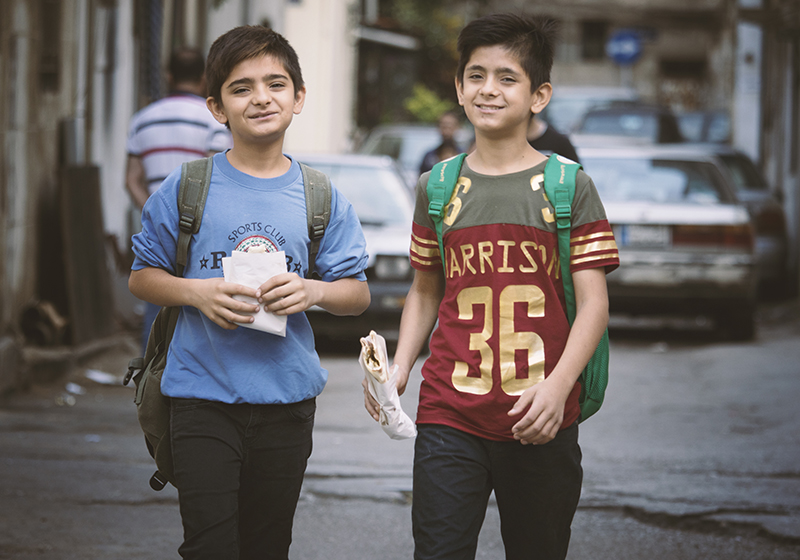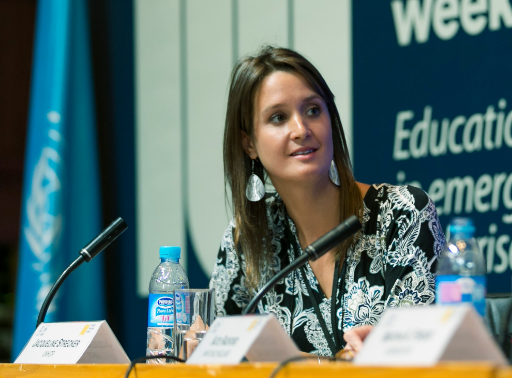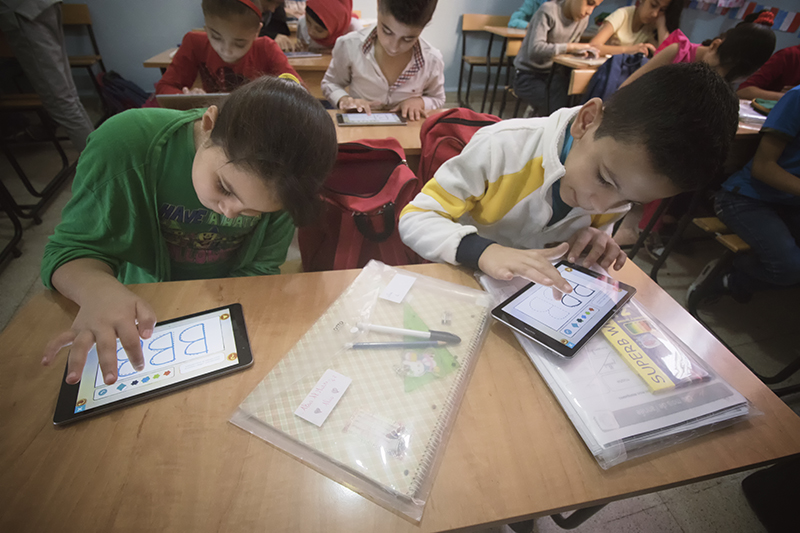The opportunities of digital education in humanitarian contexts
Children who are refugees face serious and highly varied difficulties in accessing a quality education in the same conditions as other children. In these particularly complex and vulnerable contexts in which, as we have seen, ensuring the right of all children to education becomes an obstacle course, technology and digital education can help to overcome some of the barriers that children face on a daily basis.
This post provides an overview of the state of education in these contexts and offers some lessons learnt from the experiences of ProFuturo and other organisations.
From another angle, in this interview, Jacqueline Strecker, head of connected education in ACNUR, talked to us about the major challenges involved in education in contexts involving refugees, and how digital education can help to overcome them.
Protecting education in the midst of conflict
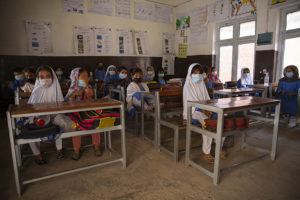
Foto: ACNUR/Sayna Bashir.
Did you know that one in every five minors in the world lives in a war zone? These children are not only deprived of their right to quality education and their chances for the future. The situation they are exposed to, where they are forced to leave their homes, their environments, their school and leave friends and family behind, is detrimental to their psychosocial development. How can we help them? How to ensure their access to quality education? How to respond to their needs for psychological and socio-emotional support? In this article we explore some of the key facts.
When a country is in the midst of a conflict situation, it may seem that the education of its children is perhaps not the most immediate need. However, guaranteeing the right to education for the youngest should not be postponed. Safely, of course. Under very special conditions, too. What are these conditions? What should international organisations, host governments of displaced people, and education policy makers in general, consider in these complex situations? Can digital education help facilitate the learning process for children in humanitarian crisis and armed conflict environments? If so, under what conditions and circumstances? In this article we attempt to answer all of these questions.
Learning to teach in refugee settings
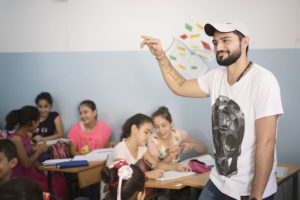
Foto: American University of Beirut y Kayany Foundation.
Teaching in a camp for refugees or displaced persons is no simple task. However, technology can provide teachers in these environments with professional development opportunities to enhance their training and improve the quality of their students’ learning. In this article we discuss the challenges and opportunities for professional teacher development with technology in refugee settings. And in this other one we offer some recommendations for designing and implementing digital professional teacher development programmes that are accessible, sustainable, and that have a major impact.
What’s more, in this article and in this video we tell you how to design a teacher training platform that meets the needs and expectations of teachers in these environments.
Focusing on the positive
According to ACNUR´s annual report Global Trends, at the end of 2022 the number of people displaced by force was estimated at 108.4 million, which is 19 million more than at the end of 2021. This represents the largest annual increase since ACNUR began to collect statistics on forced displacement. And one in every three are children unable to exercise their right to education. But today we want to focus on what is positive. For this reason, in this post we take the opportunity to tell you about some initiatives that set out to improve the future and the lives of these young students.
In addition, here we tell you some details about a very special video game that helps refugee children to learn to read in their mother tongue and to improve their psychosocial well-being, which ProFuturo has incorporated in the contexts with refugee children in which it works.
Learning from experience: ProFuturo in Malawi
In 2017, ProFuturo began adapting its Digital Education Programme to humanitarian crisis situations, to favour these children’s access to quality digital education in camps, reinforcement schools, and informal settlements in urban or rural environments. In this article, we talk about the ProFuturo project in Dzaleka refugee camp in Malawi and we draw some lessons learnt from the experience.



